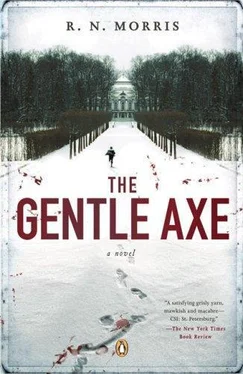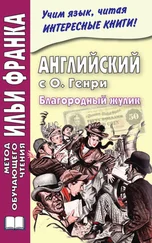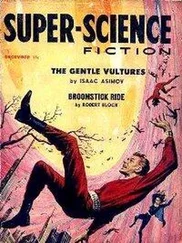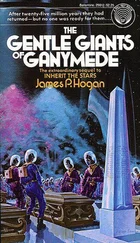R. Morris - The Gentle Axe
Здесь есть возможность читать онлайн «R. Morris - The Gentle Axe» весь текст электронной книги совершенно бесплатно (целиком полную версию без сокращений). В некоторых случаях можно слушать аудио, скачать через торрент в формате fb2 и присутствует краткое содержание. Год выпуска: 2008, ISBN: 2008, Издательство: Penguin Books, Жанр: Исторический детектив, на английском языке. Описание произведения, (предисловие) а так же отзывы посетителей доступны на портале библиотеки ЛибКат.
- Название:The Gentle Axe
- Автор:
- Издательство:Penguin Books
- Жанр:
- Год:2008
- ISBN:9780143113263
- Рейтинг книги:5 / 5. Голосов: 1
-
Избранное:Добавить в избранное
- Отзывы:
-
Ваша оценка:
- 100
- 1
- 2
- 3
- 4
- 5
The Gentle Axe: краткое содержание, описание и аннотация
Предлагаем к чтению аннотацию, описание, краткое содержание или предисловие (зависит от того, что написал сам автор книги «The Gentle Axe»). Если вы не нашли необходимую информацию о книге — напишите в комментариях, мы постараемся отыскать её.
The Gentle Axe — читать онлайн бесплатно полную книгу (весь текст) целиком
Ниже представлен текст книги, разбитый по страницам. Система сохранения места последней прочитанной страницы, позволяет с удобством читать онлайн бесплатно книгу «The Gentle Axe», без необходимости каждый раз заново искать на чём Вы остановились. Поставьте закладку, и сможете в любой момент перейти на страницу, на которой закончили чтение.
Интервал:
Закладка:
“If I am guilty of holding things back, it is only because I have nothing certain to disclose. I have discovered nothing. The solution evades me as much as it evades you.”
“But you have your suspicions?”
“Perhaps. But suspicions at this stage of the investigation are worthless.”
“You see! You will not even share your suspicions with me!”
“I will say this. I do not believe that Borya killed Goryanchikov-or himself.”
“That is obvious. You have given me nothing.”
“As for the student Virginsky-”
“You let him go.”
“I had no choice in the matter. I believe that he provides the key to the mystery somehow. Everything comes back to that contract. At the very least it provides him with a motive. But I need more than a motive. And I suspect there is more to it than meets the eye. At any rate, I have put a tail on him. I think it is as well to know what he is up to. It may even save his life.”
“You think he is in danger?”
“If the murderer believes he can incriminate him.”
“Who do you think the killer is?”
Porfiry Petrovich sighed despondently. “I do have a fault, you’re right. It’s a very Russian fault. I’m superstitious.” Porfiry’s glance was momentarily shy, almost apologetic. “Did you know I come from Tartar stock? On my grandmother’s side. She was born into a Kezhig tribe. Married a Russian subaltern. In my more fanciful moments, I like to imagine she was the daughter of the tribal shaman. Perhaps that accounts for it, my superstition. At any rate, it is that which is to blame for any reticence you may have noticed in me. Nothing more. Incidentally, contrary to what you may think, I do not believe these mysteries are solved rationally, through the exercise of a cold, deductive reasoning. The thing that terrifies me-sometimes, when I allow myself to think about it-is that I don’t know how they are solved. One must go to a place within one’s self. It is a kind of Siberia of the soul. In the criminal, it is the place where these deeds are conceived and carried through. But we all have a similar place within us, or so I believe. I know that I have. I can’t speak for you, of course.”
“What’s your point?”
“My point is, one cannot see clearly there. One gropes one’s way. Occasionally figures come toward one. Perhaps one is able to glimpse the features of a face.”
Salytov relaxed heavily. He threw himself back and sat for a while considering Porfiry’s analogy. “Nonsense,” he shouted, at last. “You’re still trying to hoodwink me. You just want to guard your secrets in case I get there first. I must disclose everything I learn to you, but you can keep everything back.”
“This has been a very diverting conversation,” said Porfiry. He took out his brightly colored cigarette case and held it open toward Salytov. The policeman snorted his refusal. The drozhki began to slow. Porfiry put away the case without taking a cigarette.
Virginsky saw the tramp huddled in a doorway on Gorokhovaya Street, a coarse sack pulled over his head. He knew from the ragged felt boots sticking out at the bottom that it was the same man.
He was relieved that the man’s face was hidden. It saved him from confronting the fear that now obsessed him: that he would recognize himself in the stranger’s features. Somehow the idea had entered his mind that this figure dogging his steps was nothing other than his future self. The absurdity of it did not escape him. That he was incapable of religious faith but was prepared to entertain this stupidity as a literal truth.
I am mad! He almost laughed out loud.
His self-awareness offered hope.
I think I am mad, therefore I am not mad.
He sensed a movement in the sacking as he passed. But did not look. He was torturing himself with the notion that the instant he looked the tramp in the eye, he would merge with him. He would become his future. What a ludicrous and humiliating-yes, humiliating, everything about his life was humiliating now-superstition! And yet he believed in it enough to keep his eyes fixed firmly ahead.
With the tramp behind him, he allowed himself to think about the meal he would soon have in a cheap restaurant. Perhaps that should have been humiliating too, given the means he had used to acquire the money for his dinner. He had not just begged; he had lied. Virginsky had no intention of attempting a word of the translation. He had gone there simply to see what he could get out of them. But he found that he was not ashamed or humiliated. He felt no compunction at all.
He was almost grateful to his hunger, as it enabled him to look forward to a five-kopek meat pie as if it were a banquet. It also excused any behavior.
He had just one more errand to run before dining. Glowing spheres of color drew him. He approached the lights in the window of Friedlander’s the apothecary. He was momentarily touched by wonder, although he knew that they were just big bottles filled with colored liquid and lit from behind. Unconsciously, his gaze went back to the doorway where he had last seen the tramp. He was dismayed to see that it was empty.
The Hotel Adrianople was a low wooden structure that squatted heavily at the side of the Bolshoi Prospect, a brooding shadow compressed beneath the featureless sky. In places, its timbers were charred, as if someone had tried to set light to it.
It was dark inside, and deserted. The reception area was minimal. A rack of keys was suspended behind a high desk at the start of a narrow, low-ceilinged corridor. Dirty yellow wallpaper absorbed the weak light.
Porfiry pushed the bell on the desk. It gave a broken chime.
A stubble-faced porter eventually appeared through an arch in one wall. He was wearing a grubby uniform undone to the belt, revealing a discolored vest. The porter assessed the two of them with an insolent expression. “A room for the hour, is it?”
“How dare you!” shouted Salytov. The speed with which he attained his rage astonished even Porfiry.
“We are looking for the boy Dmitri. It is police business. I am an investigating magistrate. This gentleman is a police lieutenant.”
“What has he done, the little gypsy?”
“Tell him we wish to give him his reward. From the tsar.”
The slovenly man stirred himself into a frown and then roared, “Dima!” without taking his eyes off Porfiry.
In an aside to Salytov, Porfiry murmured, “Please, Ilya Petrovich. Remember he is a child.” To Salytov’s look of startled outrage, he added, “There is nothing to be gained from scaring him.”
Salytov shook his head in angry impatience.
“You mentioned a reward,” said the porter, an unpleasant eagerness in his eyes.
“For Dmitri, yes,” insisted Porfiry.
The porter countered this detail with a cynical leer. “Leave it with me, your excellencies, and I will make sure that he gets it. There is no need for your excellencies to be inconvenienced. You could be here all day hanging around for that wastrel.”
“You want his reward? I’ll give you his reward!” Salytov closed in on the porter with a raised hand. Although he was protected by the desk, the porter backed away from the policeman’s threatening advance. He flashed a quizzical appeal toward Porfiry and shouted for “Dima” again, this time embellishing the diminutive with abuse.
A moment later the boy’s face peered out from the archway. It was every bit as filthy as the last time Porfiry had seen it. He had a grimy pillbox hat pushed back on the crown of his head. His eyes widened when he saw Porfiry, and it looked for a moment as if he might make a run for it.
“Ah, Dmitri, my friend! How good to see you again! I have something for you-from the tsar himself.” Porfiry held up a shiny silver ruble. It drew the bellboy out into the open. But just as Dmitri reached for it, Porfiry closed his fist around the coin.
Читать дальшеИнтервал:
Закладка:
Похожие книги на «The Gentle Axe»
Представляем Вашему вниманию похожие книги на «The Gentle Axe» списком для выбора. Мы отобрали схожую по названию и смыслу литературу в надежде предоставить читателям больше вариантов отыскать новые, интересные, ещё непрочитанные произведения.
Обсуждение, отзывы о книге «The Gentle Axe» и просто собственные мнения читателей. Оставьте ваши комментарии, напишите, что Вы думаете о произведении, его смысле или главных героях. Укажите что конкретно понравилось, а что нет, и почему Вы так считаете.












